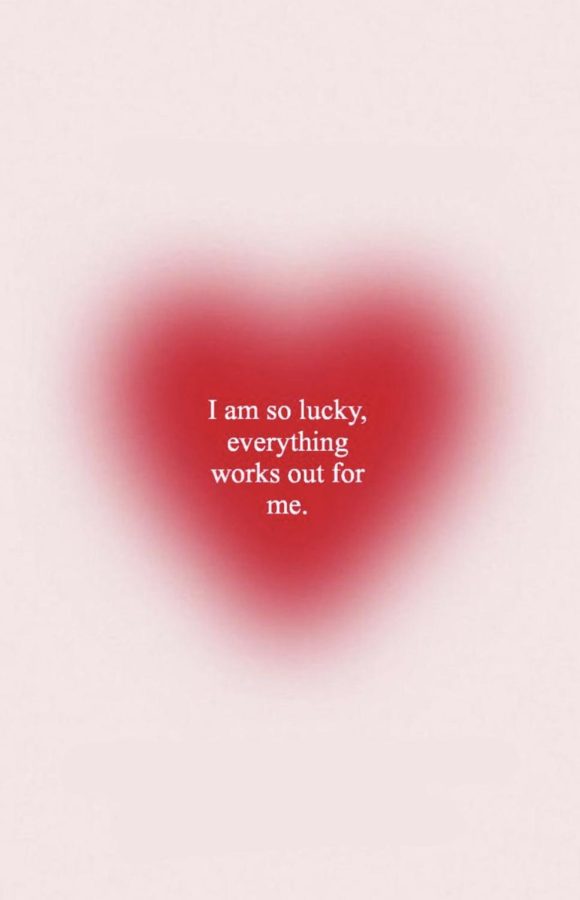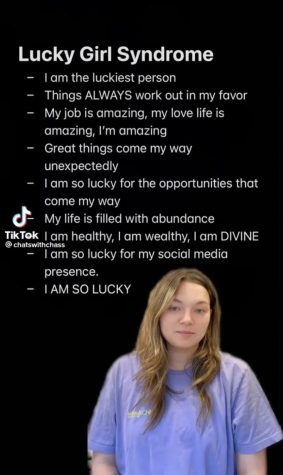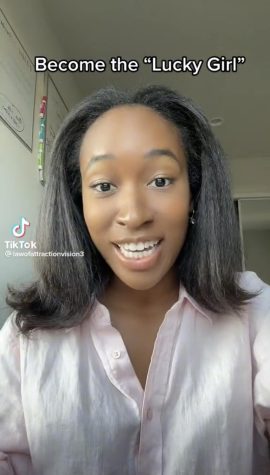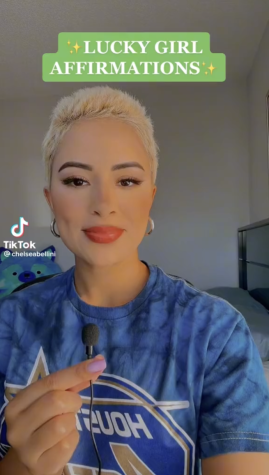Looking for Luck
Lucky Girl Syndrome: a TikTok phenomena incorporating manifestation, neuroscience, and positivity sometimes deemed as toxic new age spirituality.
Can I really make myself lucky? The answer is yes.
Lucky Girl Syndrome has been a recent TikTok phenomenon. I first heard of it in late December as I was scrolling through my For You Page. I came across Laura Galaebe (@lauragalebe on TikTok) explaining how she considers herself one of the luckiest people she knows. She claimed that after making it a point to tell everyone about her luck, she began receiving amazing opportunities out of nowhere. Even if something does not completely go her way, something better always comes after it.
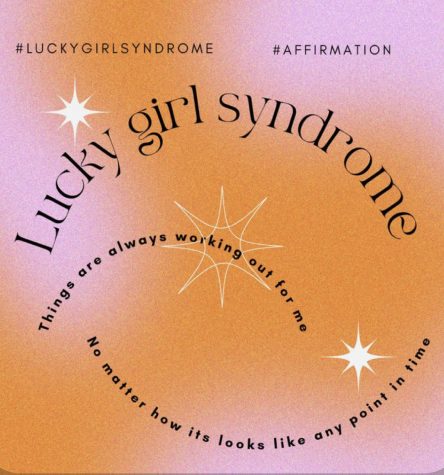
This is called Lucky Girl Syndrome. Basically, it is the idea that if you expect great things to happen to you and expect to have luck in your everyday life, then it will manifest itself into reality. Although it is trending now, this form of manifestation is not new.
A creator and life coach, Rachelle Indra (@coachrachelleindra on TikTok) made a video describing the neuroscience behind why Lucky Girl Syndrome actually works. She explains that there is a place in the back of our brain called the Reticular Activating System. It is responsible for filtering the millions of pieces of information we receive every instant. However, it is only capable of processing a fraction of that information, leaving most of it to be filtered out and forgotten. It activates the second we wake up in the morning, and we actually have some power over what it filters. She describes, “If you wake up like ‘god i’m so tired. This day is gonna suck.’ then it’s like ‘bam thank you, i will filter all the information the comes in your brain for ways, times, and events that actually suck and promote the fact that you are tired.’” If we choose to focus on the positive things, our brains will naturally look for the good in our lives.
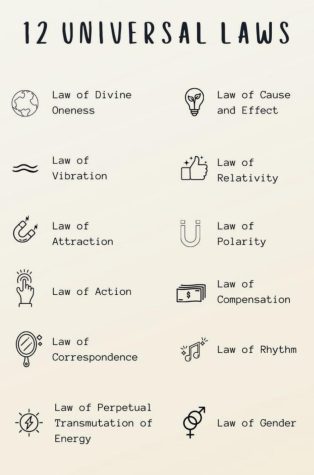
Supported by neuroscience, Lucky Girl Syndrome is actually based on the 12 laws of the universe, specifically the Law of Attraction. These laws, often connected to ancient Hawaiian and Egyptian cultures, are tools in which humanity can use to improve their happiness, wellbeing, and destiny. These laws are actually supported by the Bible, which explains that these laws govern the universe that God created. According to an article on Very Well Mind, Law of Attraction, “is a philosophy suggesting that positive thoughts bring positive results into a person’s life, while negative thoughts bring negative outcomes. It is based on the belief that thoughts are a form of energy and that positive energy attracts success in all areas of life, including health, finances, and relationships.”
Lucky Girl Syndrome is simply a trendy version of these laws. This mindset has undoubtedly brought positivity and optimism to social media. Unlike other topical trends, anyone can adopt Lucky Girl Syndrome–regardless of gender, financial status, age, race, or geography. It is worth noting that the trend is marketed to girls, since it is the main audience of most of these videos, but can be adopted by all genders. At the core of this practice is affirmations. Whether it be aloud in front of the mirror, in conversation, written in a journal, or simply an internal thought, affirmations can be practiced in a variety of ways. Here are some popular ones:
However, the key to adopting this luck is mindset. Kaitlin Villatoro (@kaitlinvillatoro on TikTok), a business owner and influencer, runs a TikTok page dedicated to helping the community understand, achieve, and practice Lucky Girl Syndrome. In one of her videos, she explains that it is a “way to justify to your brain why everything you want always works out in your favor. Because if you have this syndrome, you can’t help it, you just have it.” To truly see the effects of this manifestation, you must completely believe you are lucky and attract abundance. She also speaks about how this is a tool to catch ourselves when we think the opposite thing and reframe our thinking in order to prevent ourselves from being discouraged before we even start on whatever venture.
Every idea on social media has both supporters and detractors–Lucky Girl Syndrome is no different. Some TikTok users claim that the idea is completely false and even “narcissistic new age garbage.” Melody Walker (@melodywritessongs on TikTok), a Nashville songwriter, understands the viral concept as a toxic new age spirituality. Her main concern was the constant obligation to always be positive, or else the universe will punish you or “stop working.” The trend weighs in more on positive aspects of life, which diminishes the value of experiencing hardships and accepting parts of our lives that maybe do not go our way. She describes, “‘I am inherently lucky and everything always goes my way.’ You are making promises the universe can’t possibly keep.”
In a sense, I do agree with this. Simply expecting great things to happen is not a guarantee that they will. Taking logistical steps is the most viable component of achieving your personal goals. Then, adopting a mindset of abundance, gratitude, and optimism will only bolster the positive effects that will begin to take shape. Here are a few steps you can take to improve your physical and mental well-being:
- Eat whole foods, incorporating a wide range of complex carbs, healthy fats, vegetables, protein, and fruit.
- Engage in physical activity. Whether it be a walk, lifting weights, or even dancing.
- Keep track of your goals by mapping out how you will end up at your final destination. Set small, manageable goals as stepping stones.
- Journal your thoughts and feelings so they do not weigh you down.
- Try new things. Whether it be a restaurant, hobby, or meeting new people.
- Save money.
- Keep a tidy living or work space.
- Incorporate a balance between social and personal activities, diet and exercise.
Whether you choose to practice manifesting luck into your life or not, there is arguably no downside to incorporating a little positivity into your life. Alternatively, practicing gratitude can help you appreciate what already exists–rather than creating something out of thought.

Frankie Smith ‘23 is a new staff member of the Knight Magazine and the Knight Online. Before working on the Knight Magazine, Frankie anchored and created...

